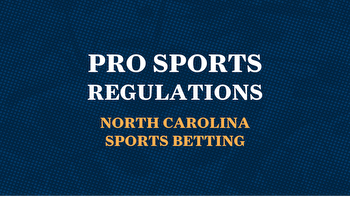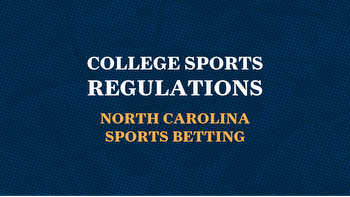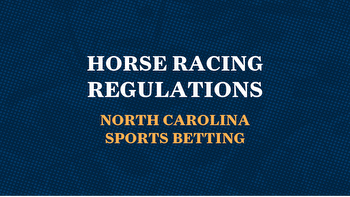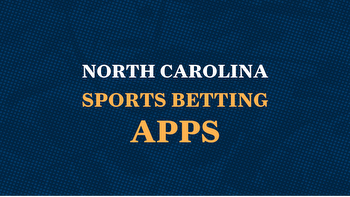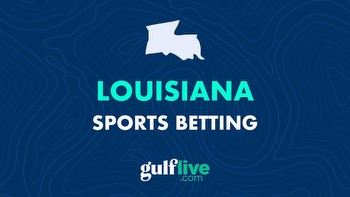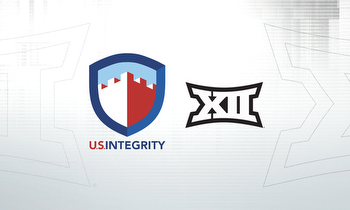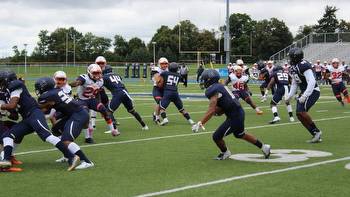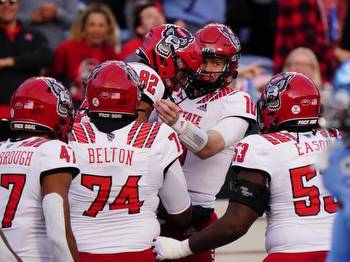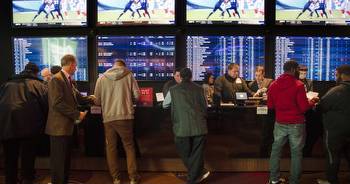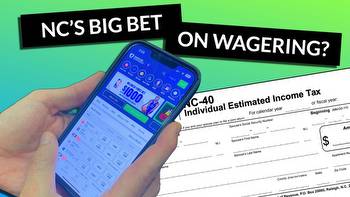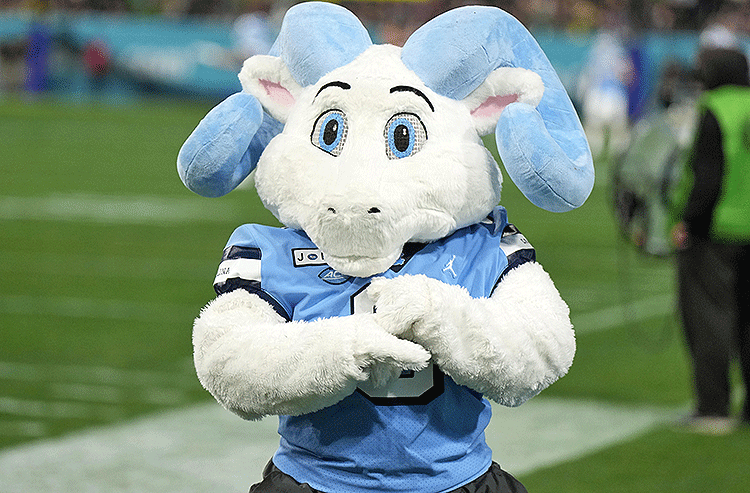North Carolina sports betting: Navigating taxes and compliance
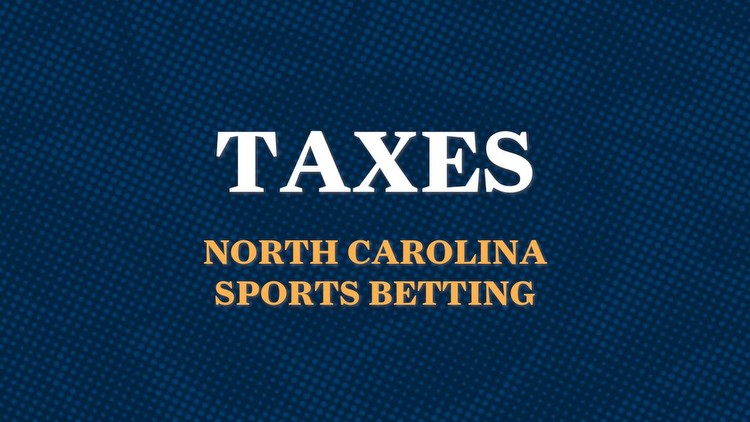
The information below is based on the legislation passed in North Carolina House Bill 347, which authorizes and regulates sports wagering in North Carolina. Slight amendments to this legislation have been implemented since the passage of North Carolina House Bill 259.
In recent years, North Carolina has joined the growing list of states legalizing sports betting, marking a significant shift in the landscape of gambling and entertainment. This move not only opens new doors for sports enthusiasts but also introduces a complex framework of regulations and tax policies that operators and bettors must navigate. With the legalization, interactive sports wagering operators are now able to offer bets on a variety of sports events, from college tournaments to professional leagues, under specific regulatory conditions and tax obligations.
The importance of understanding the tax implications for both operators and bettors cannot be overstated. For operators, it means complying with state laws to ensure their business operations are legal and profitable. For bettors, it’s about understanding potential winnings and the legalities of placing bets. This guide aims to demystify the tax policy related to sports betting in North Carolina, making it accessible to those who are neither experts in sports betting nor tax law, ensuring that everyone can participate in this new form of entertainment responsibly and informedly.
Sports betting in North Carolina was legalized in July 2019, with the initial focus on allowing bets at two tribal casinos. This marked the state’s foray into legal sports wagering, primarily restricted to in-person betting at designated locations. However, the landscape of sports betting in the state has been evolving, with discussions and legislation aiming to expand these offerings to include online and mobile betting platforms, thereby broadening access and participation for residents across the state.
Understanding the terminology used in sports betting legislation and tax policy is crucial for both operators and bettors. Here are some key definitions:
- Interactive sports wagering operators: These are entities licensed under North Carolina law to offer and accept bets on sporting events through online platforms or mobile apps. Operators are responsible for adhering to state regulations, including tax obligations, and ensuring a fair and secure betting environment for registered players.
- Gross wagering revenue: This term refers to the total amount of money collected from sports bets by operators, before deducting expenses such as winnings paid out to bettors, promotional credits, and certain allowable deductions specified by state tax laws. Gross wagering revenue is a critical figure as it forms the basis for calculating the tax owed by operators to the state.
- Registered players: Individuals who have signed up and been verified by interactive sports wagering operators to place bets on sporting events. Registration typically involves verifying the player’s age and location to ensure they meet state requirements for legal sports betting.
The legalization of sports betting in North Carolina is a significant development in the state’s gambling and entertainment industry, introducing new opportunities and responsibilities for both operators and bettors. As the state navigates this new terrain, understanding the regulatory and tax framework will be key to ensuring a successful and sustainable sports betting ecosystem.
In North Carolina, the legalization of sports betting brings with it the introduction of a privilege tax specifically designed for interactive sports wagering operators. This tax is levied on operators as a condition for the privilege of conducting sports wagering activities within the state. The concept behind this tax is to ensure that the state benefits from the commercial activity generated by sports betting, contributing to public funds while regulating the industry.
The privilege tax is set at a rate of 14% on the gross wagering revenue earned by operators. This rate is consistent across all licensed operators within the state, creating a standardized tax landscape for the sports betting industry. The 14% tax rate is applied to the gross wagering revenue, which is the total revenue generated from sports betting activities before accounting for any deductions or allowances.
It’s important to distinguish between gross wagering revenue and net revenue when discussing the taxation of sports betting. Gross wagering revenue refers to the total amount of money collected from bets, without subtracting the costs associated with running a sports betting operation. Net revenue, on the other hand, is the amount remaining after all expenses, including winnings paid out, promotional costs, and other operational expenses, have been deducted from the gross wagering revenue. The privilege tax in North Carolina is calculated based on gross wagering revenue, not net revenue, emphasizing the total intake from betting activities as the tax base.
Gross wagering revenue is defined as the total amount of money accumulated by interactive sports wagering operators from sports wagers. This figure serves as the basis for calculating the privilege tax owed to the state and is crucial for regulatory and tax purposes.
The calculation of gross wagering revenue includes all cash or cash equivalents received from sports wagers. This encompasses all bets placed by registered players, regardless of the form of payment used (e.g., cash, digital currency, or other cash equivalents).
While gross wagering revenue accounts for the total intake from sports bets, certain exclusions are allowed to accurately reflect the operator’s taxable revenue. These exclusions include:
- Winnings paid out to bettors, as these are not retained by the operator.
- Promotional credits that are used by players to place bets, reducing the operator’s taxable revenue.
- Uncollectible receivables, acknowledging the reality of unrecoverable debts.
- Federal excise tax payments on sports wagers, which are remitted directly to the federal government.
To ensure a fair taxation process, North Carolina’s tax policy allows for specific adjustments to be made to the gross wagering revenue of interactive sports wagering operators. These adjustments are designed to account for the costs and losses that can affect the operator’s overall profitability.
Operators can deduct the cost of personal property awarded to players as winnings from their gross wagering revenue. This acknowledges that such prizes are a cost of doing business and should not be taxed as revenue.
Promotional credits that are given to players and then returned to the operator in the form of deposits or wagers are also eligible for deduction. This reflects the promotional nature of these credits and their role in encouraging betting activity.
The value of uncollectible receivables, representing debts that cannot be recovered from players, can be deducted up to a limit. This acknowledges the risk of non-payment in the betting industry while setting a cap to prevent abuse of this allowance.
In months where an operator’s adjusted gross wagering revenue is negative, this loss can be carried forward to offset tax liabilities in future months. However, there are limitations to how long these negative amounts can be carried forward, ensuring that operators cannot indefinitely defer tax liabilities.
Ensuring compliance with the state’s sports betting regulations is crucial for maintaining a lawful and fair betting environment in North Carolina. This section outlines the key compliance and reporting requirements for interactive sports wagering operators.
Interactive sports wagering operators are required to file tax returns on a monthly basis. These returns must accurately report the gross wagering revenue for the month and calculate the due privilege tax at the rate of 14%. The monthly return is due by the twentieth day of the month following the calendar month being reported. This regular reporting ensures timely tax collection and allows for consistent monitoring of sports wagering activities within the state.
To safeguard the state’s interests and ensure the collection of due taxes, operators are required to furnish a bond. This bond acts as a financial guarantee against the operator’s failure to pay taxes. The amount of the bond is determined by the Secretary of the Department of Revenue and is set at two times the operator’s expected monthly tax liability, with a minimum of fifty thousand dollars ($50,000) and a maximum of two million dollars ($2,000,000). The Secretary periodically reviews the sufficiency of the bond to ensure it adequately covers the anticipated tax liability.
The Secretary of the Department of Revenue plays a pivotal role in determining and adjusting the bond amounts required from operators. This includes an initial assessment based on the operator’s expected monthly tax liability and regular reviews to adjust the bond amount as necessary. Adjustments may be made to reflect changes in the operator’s business volume or in response to compliance history, ensuring the bond amount remains adequate to cover potential tax liabilities.
The privilege tax collected from interactive sports wagering operators contributes to various state funds, reflecting the public benefit derived from sports betting activities.
The taxes collected under the sports wagering tax policy are allocated as follows:
- A portion is retained by the Department of Revenue to cover the costs associated with tax collection and enforcement.
- The North Carolina Lottery Commission is reimbursed for administrative expenses related to the oversight of sports wagering operations.
- The remaining funds are remitted to the General Fund of the state, supporting a wide range of state programs and services.
To ensure that a significant portion of the tax proceeds benefits the state, the Department of Revenue is limited in the amount it can retain for collection costs. This limit is set at no more than five hundred thousand dollars ($500,000) a year, ensuring that the majority of tax revenue contributes to the General Fund and other designated areas.
The legal and regulatory framework for sports wagering in North Carolina is designed to ensure the integrity, fairness, and responsible conduct of betting activities.
Sports wagering in North Carolina is authorized under Chapter 18C of the General Statutes. This chapter outlines the legal basis for sports betting operations, including licensing requirements, operational guidelines, tax obligations, and regulatory oversight.
The oversight and administration of sports wagering are primarily the responsibilities of the North Carolina Lottery Commission and the Department of Revenue. The Lottery Commission is tasked with licensing operators, ensuring compliance with operational standards, and upholding the integrity of sports betting activities.
Meanwhile, the Department of Revenue is responsible for the collection of taxes, enforcement of tax compliance, and determination of bond requirements for operators. Together, these entities ensure that sports wagering in North Carolina operates within the legal framework, contributing to the state’s economy while promoting responsible gambling practices.
Interactive sports wagering operators in North Carolina bear significant responsibilities to ensure the integrity and legality of their operations. Key among these are:
Operators are required to accurately calculate and remit the privilege tax based on their gross wagering revenue. This involves strict adherence to the state’s tax rate and deadlines to avoid penalties and ensure continued licensure.
Monthly tax returns must be filed with the Department of Revenue by the stipulated deadlines. Accurate and timely reporting is essential for transparent operations and serves as a basis for tax computation and regulatory oversight.
Operators are expected to conduct their activities with the highest level of integrity, including monitoring betting activities for any suspicious patterns that might suggest manipulation or unethical behavior. Reporting such activities to the relevant authorities is crucial for maintaining the trust and safety of the sports betting ecosystem.
To ensure compliance with the legal framework, North Carolina has established clear penalties for non-compliance:
Operators facing non-compliance issues may be subject to suspension or revocation of their licenses, as well as monetary penalties. These measures are intended to enforce adherence to the state’s sports wagering laws and regulations.
Engaging in unlawful wagering activities can lead to criminal charges, including misdemeanors or felonies, depending on the severity of the violation. This underscores the state’s commitment to a legally compliant and ethical betting environment.
The state offers a voluntary exclusion program allowing individuals to self-exclude from sports wagering activities, helping to manage gambling behaviors and mitigate the risks of gambling addiction.
Operators and regulatory bodies work together to promote awareness and prevent compulsive gambling. Protecting the confidentiality and privacy of bettors is paramount, ensuring a safe and responsible gaming environment.
Understanding North Carolina’s sports betting tax policy is crucial for both operators and bettors. It ensures compliance, promotes responsible gaming, and contributes to the state’s economic welfare. As the sports betting landscape evolves, continued education and adherence to these policies will benefit all stakeholders.
By providing these resources and emphasizing the importance of compliance and responsible behavior, North Carolina aims to foster a healthy, legal, and profitable sports betting industry.
Dimers.com provides exclusive sports betting content to Syracuse.com, including sports news, picks, analysis and sportsbook promotions to help bettors get in on the action. Please wager responsibly.











